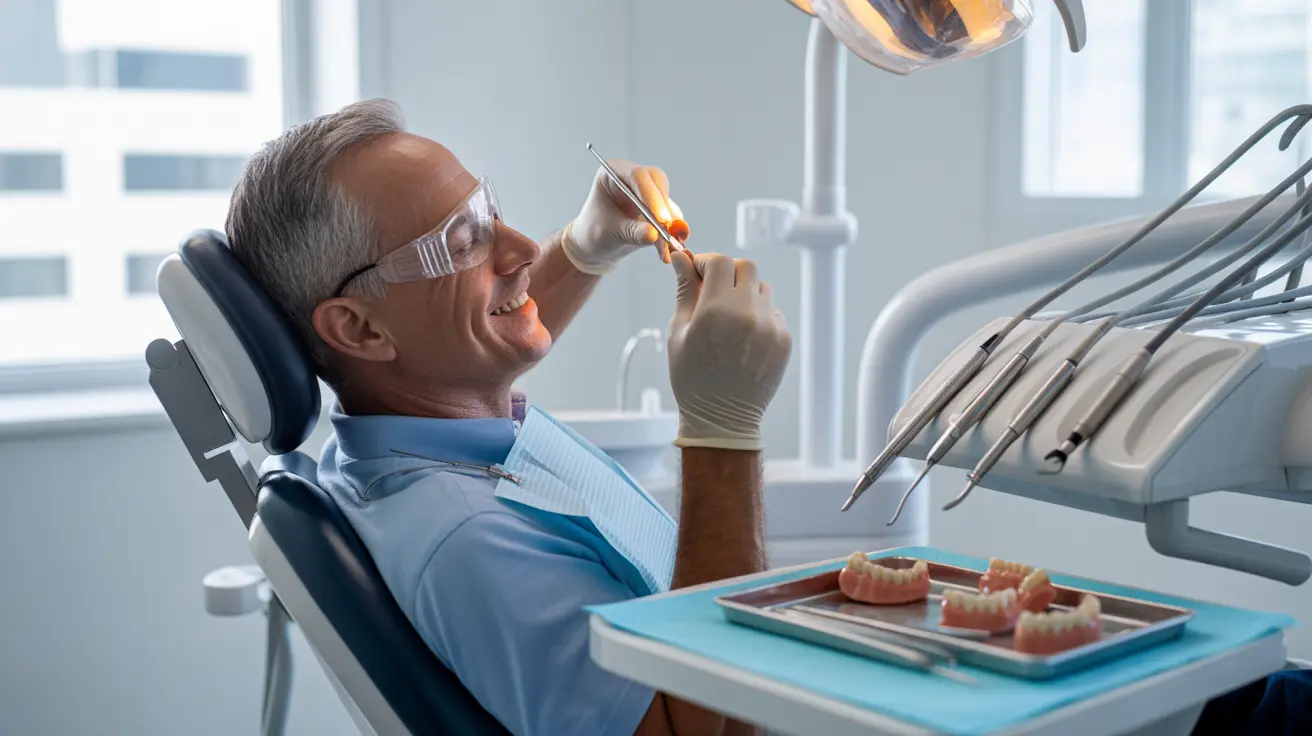Dental veneers represent a transformative cosmetic dentistry solution that can dramatically improve your smile's appearance. These thin, custom-made shells are designed to cover the front surface of teeth, effectively masking various dental imperfections while creating a natural-looking, aesthetically pleasing result.
Whether you're dealing with discolored, chipped, or misaligned teeth, veneers offer a versatile solution that has helped countless individuals achieve their desired smile. Understanding the types available, procedure details, and maintenance requirements is crucial for making an informed decision about this dental enhancement option.
Types of Dental Veneers
Two main types of dental veneers dominate the market today, each with distinct characteristics and benefits:
Porcelain Veneers
Porcelain veneers are crafted from high-quality ceramic material that closely mimics natural tooth enamel. These veneers offer superior durability and can last 10-15 years with proper care. They're highly resistant to staining and provide the most natural-looking results due to their light-reflecting properties.
Composite Resin Veneers
Composite resin veneers are made from a tooth-colored filling material. While generally more affordable than porcelain options, they typically last 5-7 years. These veneers can be placed in a single visit and require less removal of natural tooth structure.
The Veneer Placement Process
The journey to getting veneers typically involves several steps:
Initial Consultation
Your dentist will evaluate your oral health, discuss your goals, and determine if you're a good candidate for veneers. They'll explain the different options available and help you choose the most suitable type for your needs.
Preparation and Planning
Once you decide to proceed, your dentist will take impressions of your teeth and create a treatment plan. For porcelain veneers, these impressions are sent to a dental laboratory where your custom veneers will be fabricated.
The Procedure
The actual placement process involves preparing your natural teeth by removing a small amount of enamel, then carefully bonding the veneers to your teeth. The entire process typically requires two to three appointments, spread over several weeks.
Cost and Insurance Considerations
The cost of dental veneers varies significantly based on several factors, including the type of veneers chosen, the number of teeth being treated, and your geographic location. While most dental insurance plans consider veneers a cosmetic procedure and don't provide coverage, some plans may offer partial coverage if the veneers are deemed medically necessary.
Maintaining Your Veneers
Proper maintenance is crucial for extending the life of your veneers. This includes:
- Practicing excellent oral hygiene with regular brushing and flossing
- Using non-abrasive toothpaste
- Avoiding biting hard objects or using teeth as tools
- Wearing a nightguard if you grind your teeth
- Scheduling regular dental check-ups
Frequently Asked Questions
What are dental veneers and how do they improve the appearance of my teeth?
Dental veneers are thin shells custom-made to cover the front surface of teeth. They can improve the appearance of discolored, chipped, misaligned, or unevenly spaced teeth by providing a uniform, natural-looking surface that enhances your smile's overall appearance.
What is the difference between porcelain veneers and composite resin veneers?
Porcelain veneers are more durable, stain-resistant, and natural-looking, lasting 10-15 years, but are more expensive. Composite resin veneers are more affordable and can be placed in one visit, but typically last 5-7 years and are more prone to staining and wear.
How long does the dental veneer procedure take and what should I expect during treatment?
The entire process typically takes 2-3 appointments over several weeks. This includes consultation, tooth preparation, and final placement. For porcelain veneers, there's a waiting period while your custom veneers are fabricated at a dental laboratory.
Are dental veneers covered by insurance and what factors affect coverage?
Most dental insurance plans consider veneers cosmetic and don't provide coverage. However, some plans may offer partial coverage if veneers are deemed medically necessary, such as for severely damaged teeth. Factors affecting coverage include the reason for placement and your specific insurance policy.
How should I care for my veneers to ensure they last as long as possible?
To maximize the lifespan of your veneers, maintain good oral hygiene, use non-abrasive toothpaste, avoid biting hard objects, wear a nightguard if you grind your teeth, and visit your dentist regularly for check-ups. Avoiding staining substances and treating your veneers like natural teeth will help ensure their longevity.




